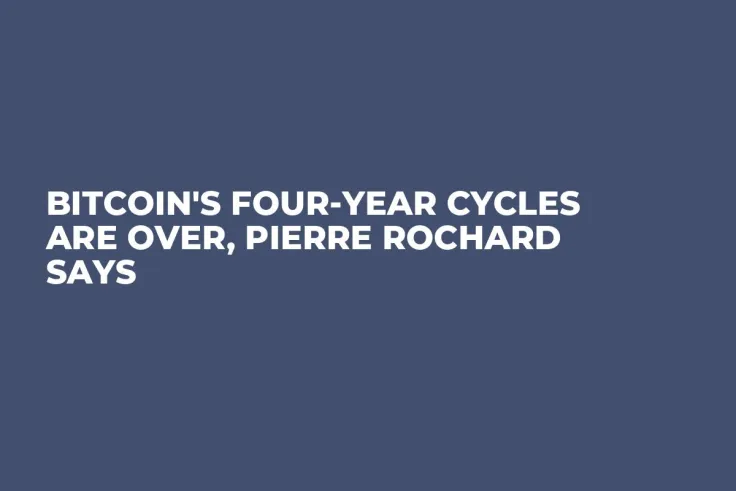Pierre Rochard, chief executive officer at The Bitcoin Bond Company, argues that Bitcoin's typical four-year market cycles are now officially over.
As reported by U.Today, such a view was also recently shared by CryptoQuant CEO Ki Young Ju.
Why halving is irrelevant
As noted by Rochard, halvings no longer change the cryptocurrency's supply in a substantial way.
Back in the day, halving events were viewed as the main drivers of bullish and bearish cycles since the reduction of block rewards would also dramatically lower the new supply.
However, now that 95% of Bitcoin's entire supply has already been mined, daily issuance does not significant impact on the existing trading float.
Furthermore, as Rochard says, the vast majority of new coins that are being sold now come from OG whales instead of miners. Hence, prices are at the mercy of the personal decisions of such whales. As reported by U.Today, roughly 80,000 Bitcoiners were recently sold by a long-time holder.
Institutions replace retail
Moreover, demand now mainly comes from institutional investors instead of speculative retail traders.
Exchange-traded funds (ETFs) as well as corporate treasuries are primarily responsible for pushing Bitcoin prices higher.
While retail investors are still somehow influential, their role has significantly diminished compared to previous cycles due to Bitcoin's growing institutional adoption.
Bitcoin's new record-high
Earlier today, the price of Bitcoin reached a multi-week peak of $122,227, according to CoinGecko data. The cryptocurrency is now awfully close to surpassing its all-time high of $122,838 that was logged in July.



 Dan Burgin
Dan Burgin Vladislav Sopov
Vladislav Sopov